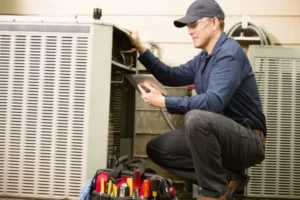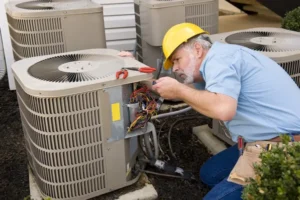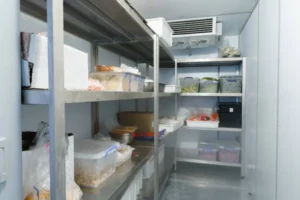
How to Spot When Your HVAC Unit Is Breaking Down
Particularly in severe weather, your home’s HVAC system (heating, ventilation, and air conditioning) is a vital component. But with time, it is vulnerable to wear and tear much like any mechanical system. Ignoring the warning indicators of a system failure can result in expensive repairs or even total system failure. Here are some important signs to look out for if you think your HVAC unit is about to break down so you don’t get left out in the cold (or heat). Strange Noises: If your HVAC system is making strange noises, this could be a warning sign. Noises that bang, rattle, grind, or screech frequently point to underlying problems like loose parts, worn-out belts, or broken motors. These noises should never be disregarded since, if ignored, they may indicate an impending system collapse. Weak Airflow: If you observe a noticeable reduction in the airflow coming from your vents, there may be a number of concerns to be concerned about, such as clogged air filters, difficulties with the ductwork, or a failing blower motor. Inadequate ventilation not only reduces comfort levels but also makes your HVAC system work harder, which raises energy costs and increases the risk of malfunctions. Uneven Temperatures: Do certain rooms in your house stay comfortably warm or cool while others are overly hot or cold? A prominent indicator of HVAC issues is an uneven distribution of temperature. It could be brought on by duct leaks, clogged vents, or broken thermostats. By taking immediate action to resolve these problems, you can save more system harm. Regular Cycling: If your air conditioning system is regularly cycling, or short cycling, it may be a sign of several different concerns, such as refrigerant leaks, thermostat malfunctions, or blocked filters. Regular cycling not only wears down your system prematurely, but it also shortens its lifespan and decreases its efficiency. Excessive Energy Bills: An abrupt rise in your energy costs without a commensurate decrease in your usage may indicate inefficiency in your HVAC system. Your system uses more energy to try to keep the desired temperature, which drives up your power bills. Keeping an eye on your energy costs will assist you in seeing possible HVAC issues early on. Odors: Never disregard odd aromas coming from your vents, such as burnt or musty scents. These smells could be signs of mold development, electrical problems, or even overheating HVAC system parts. Ignoring these scents could be harmful to your family’s health in addition to lowering the quality of the air indoors. Visible Leaks or Moisture: You should look into any leaks or moisture right away if you see any near your HVAC unit. While refrigerant leaks pose major health dangers and might cause system failure if not treated soon, water leaks may suggest issues with your condensate drain line. System Age: HVAC systems have a certain lifespan, just like any other appliance. Units that are getting close to or past their projected lifespan—typically between 10 and 15 years for most systems—may be more prone to malfunctions and inefficiencies. To prevent unforeseen interruptions, think about purchasing a replacement unit before it entirely breaks down. In conclusion, you can ultimately save time, money, and suffering by being proactive and aware of the warning indications of HVAC issues. Never hesitate to get in touch with a licensed HVAC professional if you observe any of the aforementioned symptoms so they can identify the problem and take care of it before it worsens and becomes a severe breakdown. Keep in mind that keeping your HVAC system operating smoothly and efficiently for many years to come requires routine maintenance and quick repairs. If you ever have questions, please don’t hesitate to reach out to Guaranteed Climate and Refrigeration @ (757) 717-2332



